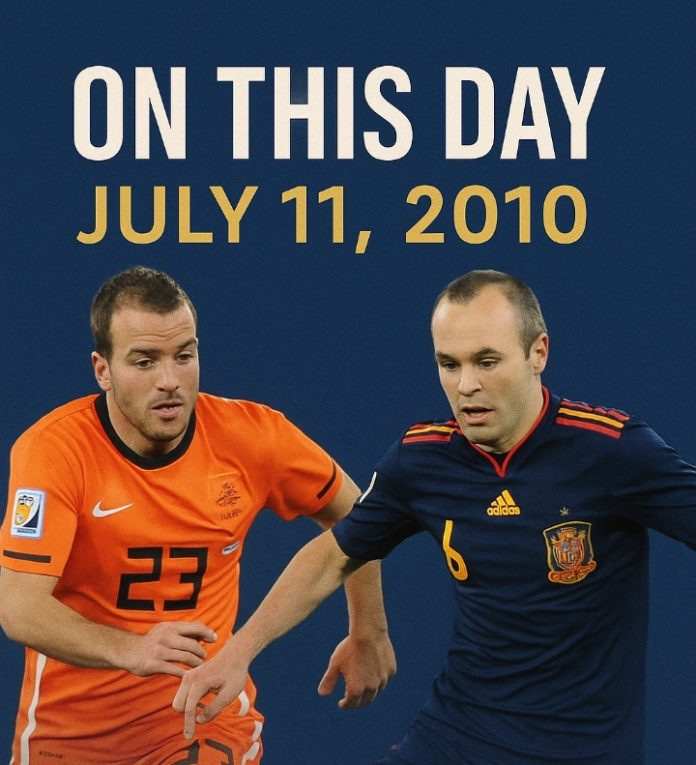On this day, July 11, 2010, football history was made in Johannesburg, South Africa, as the world watched the climax of the 2010 FIFA World Cup — the very first to be hosted on African soil. The atmosphere at Soccer City Stadium was electric as Spain faced off against the Netherlands in a final filled with tension, grit, and history in the making.

After a goalless 90 minutes of regular time — marked by aggressive challenges and 14 yellow cards — the match spilled into extra time. The breakthrough came in the 116th minute, when Andrés Iniesta received a pass from Cesc Fàbregas, took a touch, and fired a low shot past Dutch goalkeeper Maarten Stekelenburg. The ball hit the back of the net — and with it, the hopes of the Netherlands faded.
It was a moment of sheer brilliance and calm under pressure. Iniesta’s goal not only sealed a 1-0 victory for Spain, but also delivered the country its first-ever FIFA World Cup title. Spain became the eighth nation to win the World Cup and only the third team in history to win the tournament after losing their opening match.
The triumph capped a golden era for Spanish football, coming just two years after their UEFA Euro 2008 victory and preceding their Euro 2012 win, making it a historic treble of international dominance.
Beyond the football, this World Cup final held deeper meaning. South Africa’s successful hosting of the tournament marked a milestone for the continent, showcasing its spirit, culture, and capacity to bring the world together through sport.
Key Highlights:

📍 Venue: Soccer City, Johannesburg, South Africa
🏆 Result: Spain 1-0 Netherlands (after extra time)
⚽ Winning Goal: Andrés Iniesta (116’)
🟨 Most Yellow Cards in a World Cup Final (14 total)
🌍 First FIFA World Cup hosted on African soil
This final wasn’t just about a trophy — it was about legacy.
Andrés Iniesta’s goal lives on as a symbol of unity, passion, and the power of football to define history.


